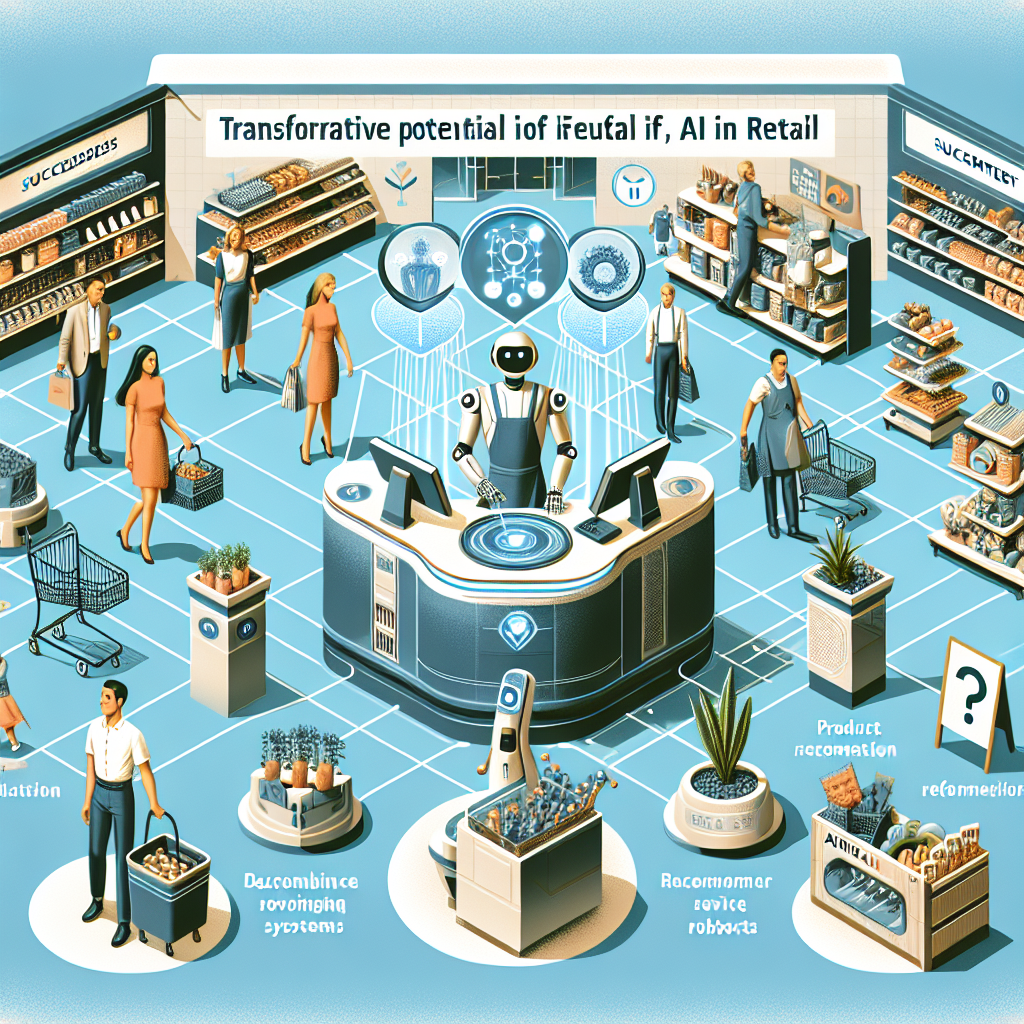AI in Customer Service: Transformative Use Cases, Success Stories, and Challenges

```html
Artificial Intelligence (AI) is not just a futuristic concept; it's already woven into the fabric of our daily lives. One area where AI's impact is particularly noticeable is in customer service. From chatbots to predictive analytics, AI is revolutionizing how businesses interact with customers. In this blog post, we’ll explore various AI use cases in customer service, share success stories, and discuss challenges and lessons learned.
Chatbots for Instant Support
Chatbots are often the first touchpoint for customer inquiries. These AI-powered tools can handle multiple tasks, from answering frequently asked questions to processing orders. Companies like H&M and Sephora use chatbots to provide 24/7 customer support, reducing wait times and enhancing customer satisfaction.
While chatbots are effective, they come with their own set of challenges. For instance, one company experienced customer frustration when their chatbot couldn't handle complex queries. This example emphasizes the need for a hybrid approach, where chatbots handle simple issues and escalate complex ones to human agents.
Predictive Analytics for Customer Insights
AI-driven predictive analytics helps businesses anticipate customer needs and behaviors. Retailers like Amazon utilize AI to recommend products based on past purchases and browsing history. This personalized approach has led to higher conversion rates and customer loyalty.
However, predictive analytics must be used cautiously. A financial services company faced backlash when their AI system incorrectly flagged loyal customers for fraud, leading to account freezes. This incident highlighted the importance of ongoing model validation and balancing automation with human oversight.
Natural Language Processing (NLP) for Understanding Customer Sentiment
NLP tools analyze customer interactions to gauge sentiment and identify trends. Companies like HubSpot use NLP to monitor social media mentions and online reviews, allowing them to respond to customer feedback promptly. This real-time insight helps businesses address issues before they escalate.
Despite its advantages, NLP can sometimes misinterpret nuances in language, leading to inaccurate sentiment analysis. A tech company faced challenges when their AI system misclassified sarcastic customer feedback as positive. This demonstrated the need for combining AI insights with human judgment to ensure accurate interpretation.
AI-Enhanced Virtual Assistants
Virtual assistants like Apple's Siri and Amazon's Alexa are becoming increasingly sophisticated, offering personalized customer interactions. Businesses are integrating these assistants into their customer service strategies to provide seamless experiences. For example, Capital One's Eno chatbot helps customers manage their accounts, track spending, and receive alerts.
However, virtual assistants can also struggle with complex queries. One bank faced issues when their virtual assistant failed to provide accurate responses to specific financial questions, leading to customer dissatisfaction. This highlighted the importance of continuous training and updates to AI systems to ensure they meet customer expectations.
Automating Routine Tasks
AI is streamlining routine customer service tasks such as appointment scheduling, ticket routing, and order processing. Companies like Zappos use AI to manage their helpdesk tickets, ensuring queries are routed to the appropriate agents quickly. This automation frees up human agents to focus on more complex issues, improving overall efficiency.
Despite its benefits, automation can create new challenges. A healthcare provider encountered problems when their AI system incorrectly categorized urgent patient inquiries as non-urgent, delaying responses. This incident underscores the importance of regular audits and human oversight in AI-driven processes.
The Future of AI in Customer Service
The future of AI in customer service is promising, with advancements expected in areas such as emotional AI, voice recognition, and seamless omni-channel experiences. AI’s capabilities in real-time data analysis, personalization, and automation are set to drive further innovation in customer interactions.
To fully leverage AI’s potential, it is crucial to address ethical considerations, ensure data privacy, and maintain a balance between automation and human touch. Collaboration between AI developers, customer service professionals, and business leaders will be key to achieving responsible and effective AI deployment.
In conclusion, AI is transforming customer service through applications in chatbots, predictive analytics, NLP, virtual assistants, and task automation. Success stories from companies like Amazon and Sephora highlight AI’s transformative potential, while challenges emphasize the need for continuous refinement and ethical practices. As AI technology evolves, its role in customer service will expand, offering new opportunities for improved customer experiences and business efficiency.
```



